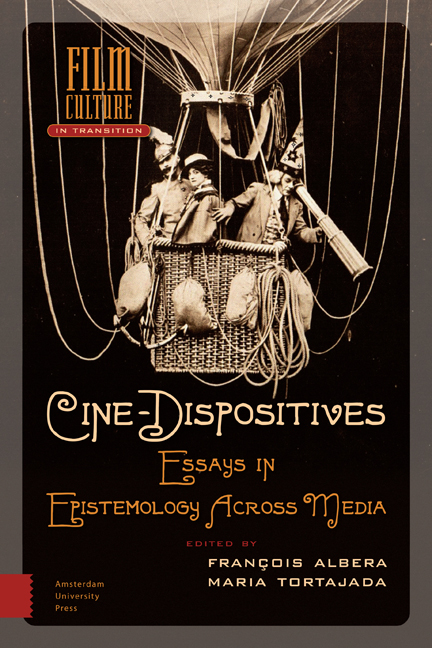The Amateur-Dispositive
Published online by Cambridge University Press: 10 February 2021
Summary
The issue of the “amateur” or “amateurs” is more topical than ever these days, because of the easier access to equipment produced by new technologies, its miniaturization and availability, with mass industrial production making it affordable for a large majority of people. The phenomenon has been widely taken into account in the field of photography studies, where it always went hand in hand with the other – learned, expert, professional – tradition, from Foto-Auge in 1929 to the exhibition “Tous photographes” (Lausanne, 2007) or “From here on” (Arles, 2011). However, the same phenomenon is now assuming a whole other dimension, in particular with sociologists.
Despite the economic and social importance of cinema, this question – which runs through the history and the “prehistory” of the medium – has not been given a significant place so far in different discourses, whether critical or academic. It should probably be rephrased in terms of private uses or even “techniques of the self” to find a field of study that would liberate it from the narrow range of its “object.”
Only in “utopian” literature – to which I would rather refer as “literature of extrapolation” – has this issue been apprehended within a larger framework, where “cinema” is considered not only as an art, but also as a medium.
As a consequence, it may prove an “ideal” object when it comes to fully developing the question of the “dispositif” – from the most humble mechanical device, the machine used for shooting with its accessories, the projector, the way they operate, to a social dimension, with the role, usage, and place of this machinery in family life, the intimacy of subjects, their imaginary, and finally at the level of the general organization of viewing and listening machines in society. It lies at the intersection between the general norm, indexed on technical knowledge and the rules of representation, and individual autonomy from this norm, which may still be verified in it and feeds on it – neither one really preceding the other, each presupposed in the other. The “paying public projection,” which was chosen as the beginning of “the history of cinema,” summons a crowd, all the crowds in the world, simultaneously if possible, by assigning them the place of the spectator: this is a well-known narrative.
- Type
- Chapter
- Information
- Cine-DispositivesEssays in Epistemology Across Media, pp. 299 - 318Publisher: Amsterdam University PressPrint publication year: 2015



